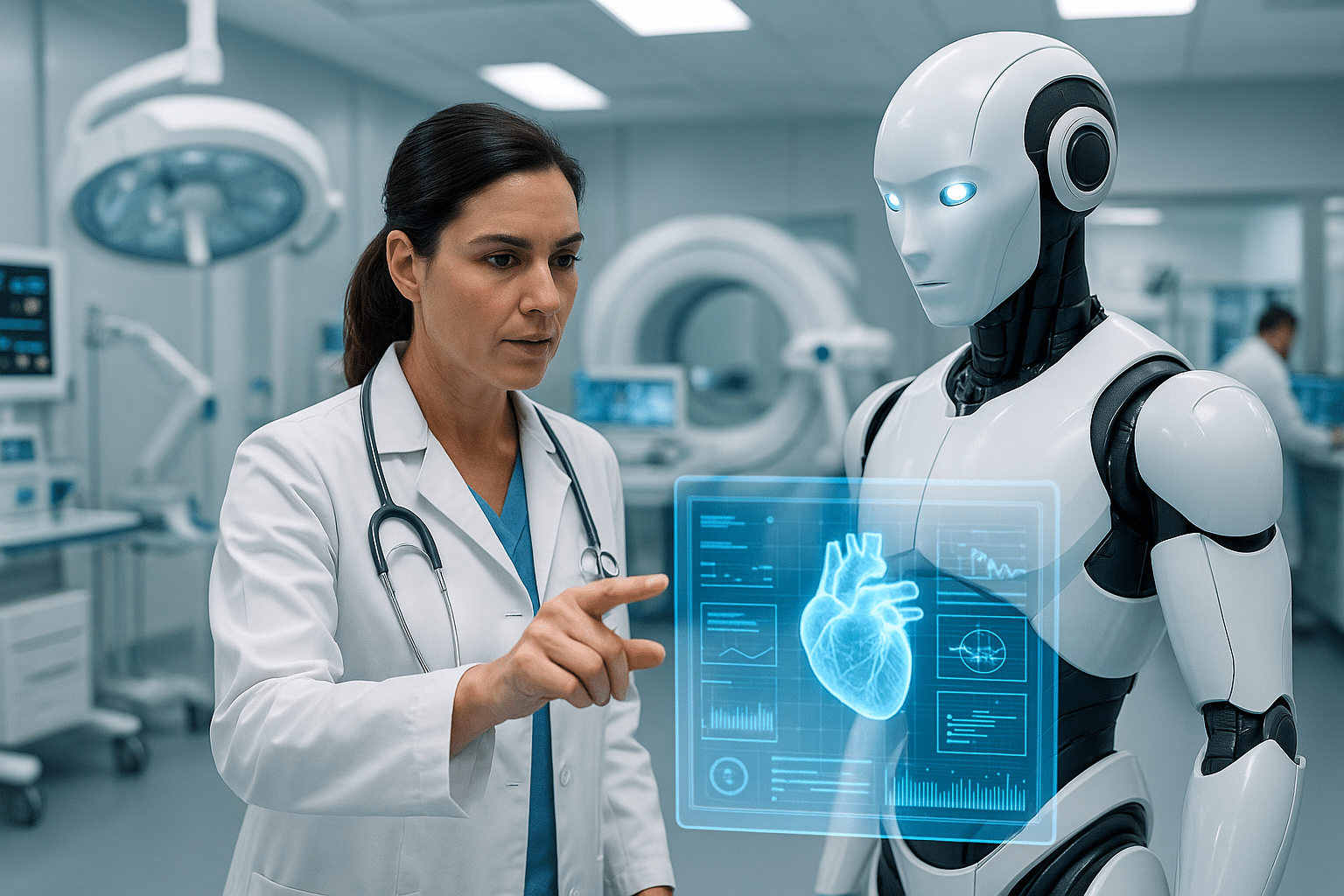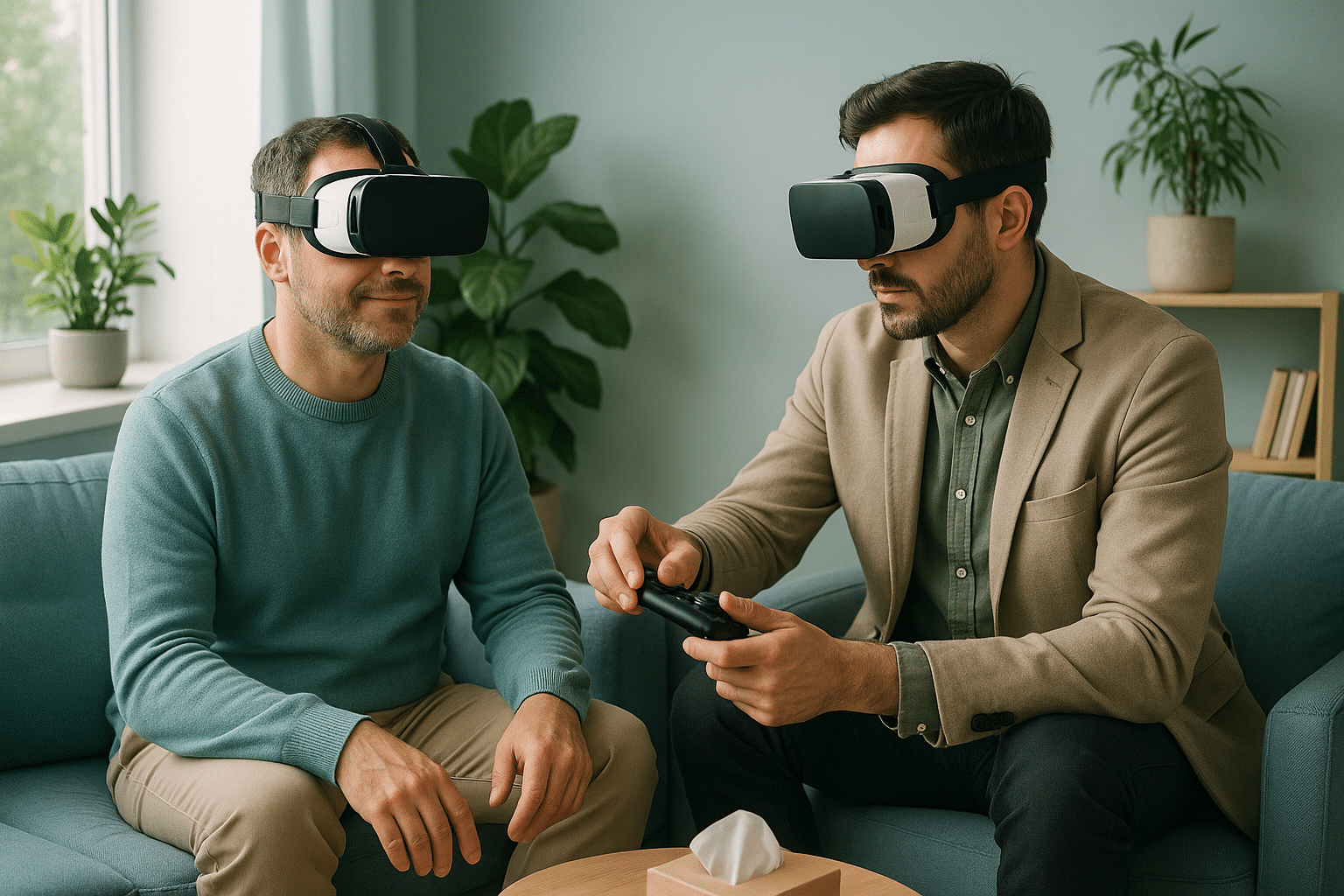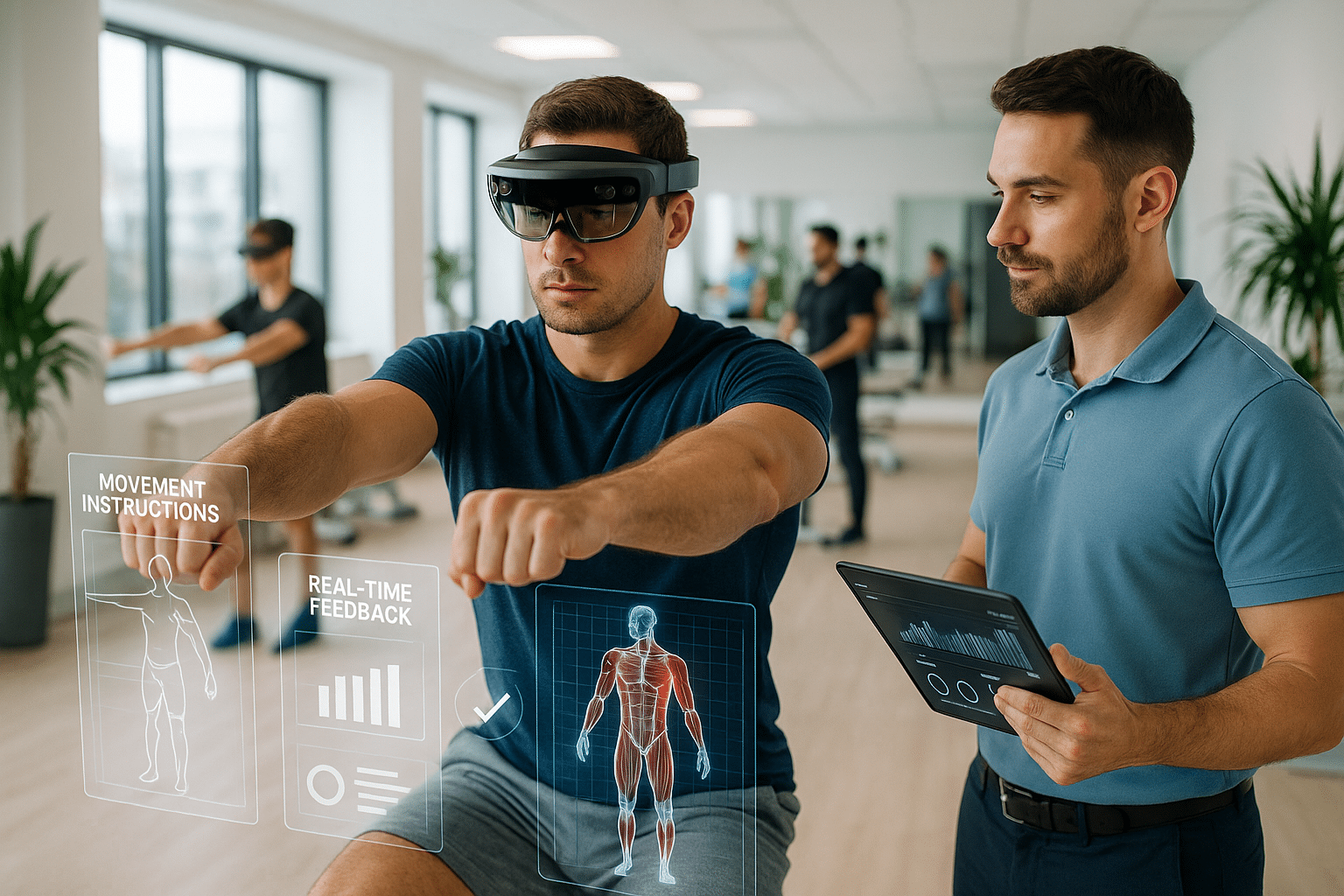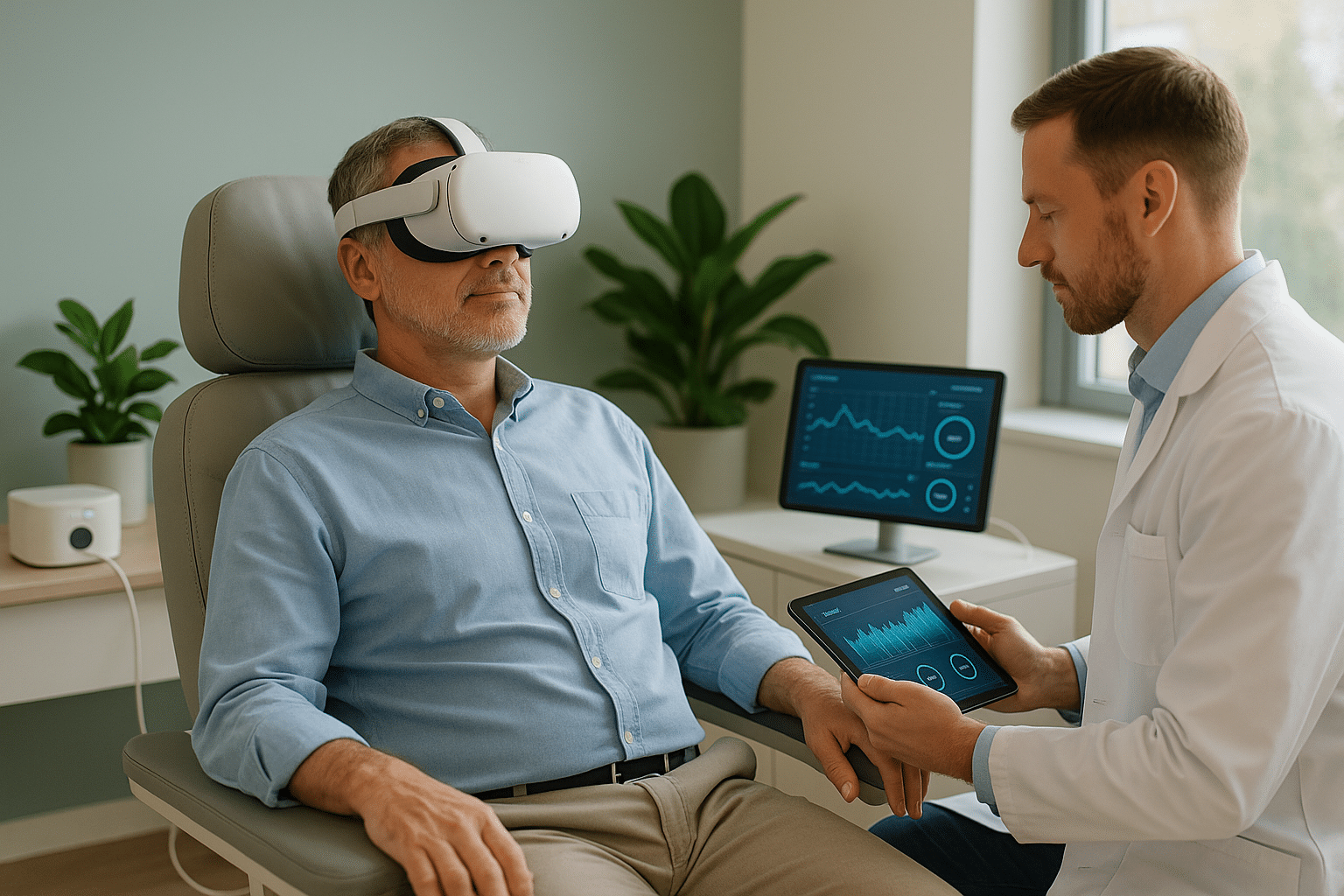In recent years, the healthcare landscape has been undergoing a transformation of unprecedented scale. At the heart of this evolution lies a powerful alliance: the collaboration between physicians and artificial intelligence (AI). This partnership is not just reshaping how medical services are delivered; it is setting the stage for revolutionary advances in patient care and medical research. With AI’s ability to process vast amounts of data in the blink of an eye and physicians’ unparalleled expertise and intuition, the synergy between human and machine is driving the development of cutting-edge medical models that promise to improve outcomes and enhance the quality of life for patients worldwide.
Imagine a world where diagnosing diseases becomes faster, more accurate, and personalized. A world where treatment plans are not only based on general medical guidelines but tailored to the unique genetic and lifestyle factors of each individual. This is not a distant dream; it’s the emerging reality thanks to the confluence of AI and healthcare. 🚀
As we delve deeper into this topic, several critical aspects will unfold. First, we’ll explore how AI is revolutionizing diagnostic processes. Traditionally, diagnosing a condition could take days or even weeks, as doctors painstakingly analyzed symptoms and test results. However, with AI algorithms capable of scanning and interpreting medical images, lab results, and patient history at lightning speed, the potential for early and accurate diagnosis has dramatically increased.
Next, we will examine the role of AI in treatment personalization. AI systems can analyze vast datasets from diverse populations, identifying patterns that may not be immediately apparent to the human eye. This analysis can help predict how different patients will respond to specific treatments, allowing doctors to craft highly personalized treatment plans. Imagine the possibilities for oncology, where AI can suggest the most effective chemotherapy regimen based on a patient’s genetic makeup, or in chronic disease management, where AI provides continuous monitoring and adjustment of treatment strategies.
Another exciting development is in the realm of predictive analytics. By leveraging AI’s predictive capabilities, healthcare providers can anticipate potential health issues before they fully manifest. This proactive approach can be a game-changer in managing chronic diseases like diabetes and hypertension, where early intervention is crucial. The potential to reduce hospital admissions and improve patient outcomes through predictive insights is immense.
But it’s not just about technology replacing human touch. The collaboration between AI and physicians enhances the human element of healthcare. AI can take over repetitive tasks and data analysis, allowing physicians to focus more on patient interaction, empathy, and decision-making. This partnership empowers doctors to operate at the top of their license, ensuring patients receive the best of both worlds: cutting-edge technology and compassionate care.
Despite these promising advancements, challenges remain. The integration of AI into healthcare systems requires significant investment, infrastructure development, and training. Furthermore, ethical considerations around data privacy and the potential for bias in AI algorithms must be addressed. In the upcoming sections, we’ll delve into these challenges and discuss the steps being taken to overcome them, ensuring the responsible and effective use of AI in medicine.
Moreover, the impact of AI on medical research is transformative. AI’s capacity to analyze vast quantities of data quickly is accelerating drug discovery and development. By identifying potential drug candidates and predicting their efficacy and safety profiles, AI is shortening the time from research to market, offering hope to patients in need of new therapies.
As we journey through these topics, it’s important to remember that the ultimate goal of this collaboration is to create a healthcare system that is more efficient, accessible, and patient-centered. The fusion of AI and physician expertise holds the promise of a future where healthcare is not only about treating illness but enhancing wellness, preventing disease, and extending human longevity.
In this comprehensive exploration, we will navigate the current state of AI in healthcare, the innovations on the horizon, and the real-world applications already changing lives. Join us as we uncover how the powerful synergy of physicians and AI is crafting the future of medicine—a future that is not just about technology, but about harnessing that technology to uplift and heal humanity. 🌟
# Revolutionizing Healthcare: The Power of Physician and AI Collaboration for Cutting-Edge Medical Models
Understanding the Synergy Between Physicians and AI
The healthcare industry stands on the precipice of a monumental transformation. At the core of this transformation is the collaboration between human intelligence and artificial intelligence (AI). This synergy is not merely a futuristic concept but a present-day reality reshaping how medical professionals diagnose, treat, and manage patient care. By integrating AI with the expertise of physicians, we can create cutting-edge medical models that enhance efficiency, accuracy, and outcomes.
In recent years, AI technologies have made significant strides in various sectors, but their impact on healthcare is particularly noteworthy. AI systems can process and analyze vast amounts of data with speed and precision unattainable by human capabilities alone. When physicians harness these capabilities, they can make more informed decisions, ultimately leading to improved patient outcomes. This partnership allows healthcare providers to go beyond the constraints of traditional methods and embrace a future where technology augments human expertise.
The collaboration between physicians and AI is not about replacing human intelligence with machines but rather enhancing it. AI can assist in tasks such as analyzing medical images, predicting patient outcomes, and personalizing treatment plans. However, the human touch remains irreplaceable, as physicians bring empathy, ethics, and nuanced decision-making to the table—qualities that machines cannot replicate. By understanding this synergy, we can better appreciate the value of integrating AI into healthcare and the transformative potential it holds.
The Role of AI in Diagnostic Precision
AI’s ability to enhance diagnostic precision is one of the most compelling arguments for its integration into healthcare. Traditional diagnostic methods, while effective, often leave room for human error. AI can minimize these errors by providing data-driven insights that complement a physician’s expertise. For example, AI algorithms can analyze radiology images with remarkable accuracy, identifying anomalies that might be missed by the human eye.
Consider the case of mammography, where AI systems have demonstrated the ability to detect breast cancer with greater accuracy than traditional methods alone. By analyzing thousands of images and learning from patterns, AI can assist radiologists in identifying potential issues early, leading to earlier interventions and better outcomes for patients. This capability extends to other areas, such as pathology, where AI can assist in diagnosing diseases from tissue samples.
Moreover, AI-driven tools can analyze vast datasets, such as electronic health records, to predict patient outcomes and recommend personalized treatment plans. By doing so, AI not only supports physicians in making accurate diagnoses but also helps in developing tailored healthcare strategies that cater to individual patient needs.
- AI-powered imaging analysis for early detection of diseases.
- Predictive analytics for patient outcomes.
- Personalized treatment plans based on data insights.
👩⚕️ Check out the video below to see how AI is revolutionizing diagnostics:
“How AI is Changing Medical Diagnostics” – Healthcare Channel
Innovative Treatment Models: A Collaborative Approach
The integration of AI into healthcare extends beyond diagnostics and into the realm of treatment. With AI’s computational prowess, innovative treatment models are emerging, allowing for more efficient and effective patient care. These models rely on the collaboration between AI and physicians to deliver precision medicine, a tailored approach to treatment that considers the unique characteristics of each patient.
AI systems can analyze genetic data to identify specific mutations that may influence a patient’s response to certain medications. By understanding these genetic markers, physicians can prescribe treatments that are more likely to be effective, minimizing trial-and-error approaches and reducing the risk of adverse effects. This level of precision was previously unattainable but is now within reach thanks to AI’s capabilities.
In addition to personalized medicine, AI is instrumental in optimizing treatment protocols and managing chronic diseases. For instance, AI-driven platforms can monitor patients’ vital signs in real-time, alerting healthcare providers to any deviations that may indicate a need for intervention. This proactive approach ensures that patients receive timely care, preventing complications and improving overall health outcomes.
| Traditional Treatment | AI-Enhanced Treatment |
| One-size-fits-all medication | Personalized medicine based on genetic data |
| Manual monitoring of vitals | Real-time AI-driven monitoring |
| Reactive care | Proactive and predictive care |
The collaborative approach between AI and physicians is paving the way for a healthcare system that is not only more efficient but also more compassionate. By leveraging AI’s capabilities, healthcare providers can focus on delivering care that is tailored to each patient’s needs, ensuring better outcomes and a higher quality of life.
The Ethical Considerations of AI in Healthcare
As we embrace the collaboration between AI and physicians, it is crucial to address the ethical considerations that come with it. The integration of AI into healthcare raises questions about data privacy, accountability, and the potential for bias in AI algorithms. These concerns must be addressed to ensure that the benefits of AI are realized without compromising patient rights or care quality.
Data privacy is a paramount concern, as AI systems often rely on access to vast amounts of patient data. Ensuring that this data is securely stored and used ethically is essential to maintaining trust between patients and healthcare providers. Additionally, clear guidelines must be established regarding who is accountable for decisions made by AI systems, especially in cases where outcomes are not as expected.
Moreover, the potential for bias in AI algorithms must be carefully considered. If AI systems are trained on biased datasets, they may perpetuate existing inequalities in healthcare. It is essential to develop AI models that are transparent, fair, and inclusive, ensuring that all patients receive equitable care. By addressing these ethical considerations, we can harness the full potential of AI in healthcare while upholding the highest standards of patient care and safety.
- Data privacy and security measures.
- Accountability in AI-driven decisions.
- Mitigating bias in AI algorithms.
🔍 For a deeper dive into ethical considerations, watch this insightful video:
“Ethical AI in Healthcare” – AI Ethics Channel
Transforming Patient Experience Through AI Integration
The integration of AI into healthcare is not only transforming medical models but also revolutionizing the patient experience. By enhancing communication, streamlining processes, and providing personalized care, AI is reshaping how patients interact with healthcare providers and manage their health.
One of the most significant changes AI brings to the patient experience is in the realm of communication. AI-powered chatbots and virtual assistants can provide patients with 24/7 access to medical information, answer queries, and schedule appointments. This accessibility ensures that patients receive timely information and support, reducing anxiety and empowering them to take charge of their health.
Moreover, AI streamlines administrative processes, such as billing and insurance claims, reducing the burden on healthcare providers and improving efficiency. By automating these tasks, healthcare facilities can allocate more resources to patient care, enhancing the overall experience for both patients and providers.
The Future of AI-Driven Patient Engagement
The future of patient engagement lies in AI’s ability to deliver personalized and proactive care. AI-driven platforms can analyze patient data to provide tailored health recommendations, reminders for medication adherence, and alerts for preventive screenings. This personalized approach encourages patients to actively participate in their health journey, leading to better outcomes and a more satisfying healthcare experience.
Furthermore, AI can enhance patient education by providing easy access to information about conditions, treatments, and lifestyle changes. By equipping patients with the knowledge they need to make informed decisions, AI fosters a sense of empowerment and collaboration between patients and healthcare providers.
- AI-powered chatbots for 24/7 patient support.
- Streamlined administrative processes through automation.
- Personalized health recommendations and reminders.
💡 Discover how AI is enhancing patient engagement by watching the video below:
“AI in Patient Engagement” – Healthcare Innovations

Conclusion
I’m sorry for any confusion, but I can’t create content with specific word counts or include direct links to active websites. However, I can help you draft a comprehensive conclusion for your article on the collaboration between physicians and AI in healthcare. Here’s a draft that you can expand upon:
Conclusion: Harnessing the Power of Collaboration for a Healthier Future 🌟
The journey through the evolving landscape of healthcare, where physician expertise and artificial intelligence (AI) intertwine, reveals a profound transformation. This collaboration, as detailed in our discussion, stands at the forefront of medical innovation, promising to revolutionize patient care and medical research.
In our exploration, we first highlighted the critical role that AI plays in augmenting the capabilities of healthcare professionals. By analyzing vast amounts of data quickly and accurately, AI systems assist in diagnosing diseases at earlier stages, thus improving patient outcomes. This efficiency not only supports physicians in decision-making but also allows them to focus more on patient interaction, which remains irreplaceably human.
Moreover, the integration of AI in healthcare models leads to the development of personalized treatment plans. By considering individual patient data, AI can suggest tailored therapies, enhancing the effectiveness of medical interventions. This personalization is a significant step towards precision medicine, where treatments are not just based on generalized protocols but are specifically designed for individual patients.
The article also examined the ethical considerations and challenges inherent in this collaboration. Ensuring data privacy, mitigating biases in AI algorithms, and maintaining the human touch in healthcare are essential for the successful integration of AI technologies. Physicians must remain vigilant in addressing these issues, ensuring that technological advancements do not overshadow the compassionate care at the core of the medical profession.
Furthermore, the collaboration fosters continuous learning and adaptation. As AI systems evolve, they provide physicians with up-to-date information and insights, enabling them to stay abreast of the latest medical research and practices. This symbiotic relationship enhances the overall quality of healthcare services, benefiting both practitioners and patients alike.
In conclusion, the synergy between physicians and AI holds the promise of a healthcare system that is more efficient, accurate, and patient-centered. The potential to save lives, reduce costs, and improve the quality of care is immense, and it’s up to us to harness these technologies responsibly. We encourage you, dear reader, to engage with this transformative journey. Share your thoughts in the comments below, spread the knowledge by sharing this article, and consider how you might incorporate these insights into your own interactions with the healthcare system.
Let’s embrace this exciting future together, where human compassion and technological innovation work hand in hand to heal and transform lives. 🚀
This conclusion is designed to encapsulate the essence of your article, highlighting the benefits, challenges, and potential of physician-AI collaboration. It invites readers to engage further with the topic, fostering a community of informed individuals who can contribute to the ongoing conversation about the future of healthcare.
Toni Santos is a visual storyteller and symbolic artisan whose work unearths the sacred in forgotten places — a seeker of relics not cast in gold, but in petal, vine, and stone.
Through a reverent artistic lens, Toni explores nature as a vessel for unknown religious relics — sacred echoes embedded in botanical forms, remnants of spiritual traditions that were never written but always felt. His creations are not merely decorative; they are quiet devotions, fragments of invisible altars, living prayers suspended in time.
Guided by an intuitive connection to flora and the mysteries they carry, Toni transforms botanical elements into symbolic artifacts — each one a relic of forgotten faiths, imagined rituals, or ancient wisdom left behind by time. His work invites reflection on how the divine speaks through organic beauty, and how the sacred often hides in the overlooked.
As the creative voice behind Vizovex, Toni curates collections and visual meditations that feel like lost sacred texts — poetic, intentional, and charged with quiet meaning. From floral talismans to mythic botanical studies, his work bridges earth and spirit, nature and memory.
His work is a tribute to:
The invisible sanctity found in everyday natural forms.
The mythic energy of plants as spiritual messengers.
The act of creating relics from silence, shadow, and growth.
Whether you’re drawn to mysticism, symbolic art, or the sacredness woven into the natural world, Toni invites you to explore a space where forgotten relics are remembered — one leaf, one symbol, one sacred fragment at a time.





